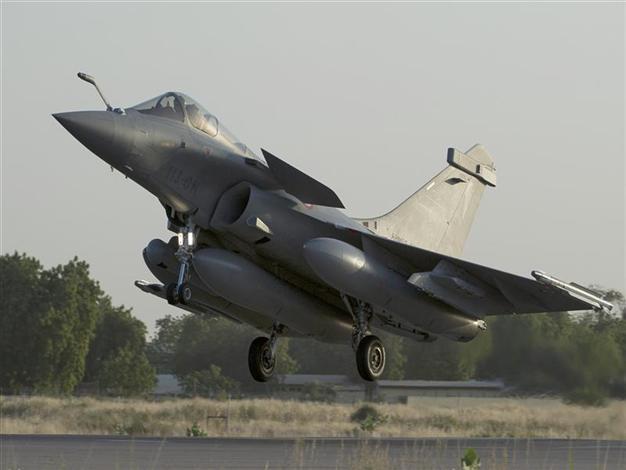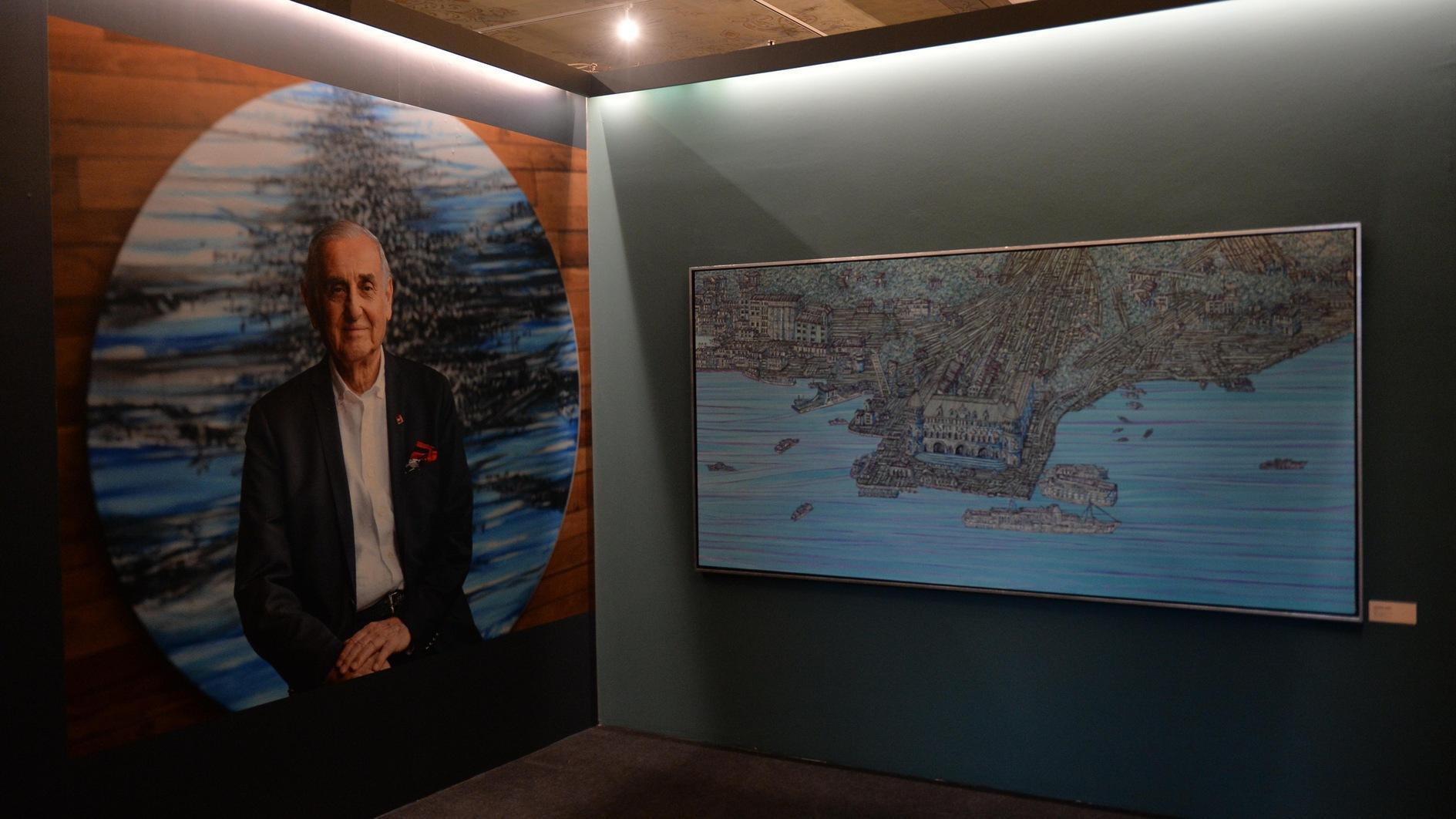France bombs Islamist targets in Mali after Hollande visit
TIMBUKTU, Mali - Agence France-Presse

Rafale fighter jets take off from France as part of an operation to strike Islamist targets in the north of Mali. EPA photo
France said it carried out major air strikes today near Kidal, the last bastion of armed extremists chased from Mali's desert north, in a lightning French-led offensive, after a whirlwind visit by President François Hollande, Agence France-Presse has reported.
An army spokesman said 30 warplanes had bombed training and logistics centers run by Islamist extremists overnight in the Tessalit area north of Kidal, where French troops took the airport on Jan. 30 and have been working to secure the town itself.
Residents said French and Chadian soldiers had patrolled the town for the first time Feb. 2 as the rest of the country feted Hollande on his tour, a victory lap that came three weeks into a so far successful intervention to oust the Islamists who occupied northern Mali for 10 months.
Hollande, who called the trip the "most important day of my political life,” was greeted by ecstatic crowds in the capital, Bamako, and the fabled city of Timbuktu with cheers of "Vive la France! Long live Hollande!" and given a young camel draped in a French flag.
The French-led forces have met little resistance in their campaign, with officials saying many Islamists have likely fled to the mountainous terrain around Kidal.
After taking Kidal's airport, French troops were delayed by a sandstorm and a delicate situation on the ground, as officials said seven French hostages were believed to be in the area and the rebels splintered, with the breakaway Islamic Movement of Azawad (MIA) extending an olive branch by renouncing "extremism and terrorism.”
Kidal residents told AFP they had seen Chadian soldiers shopping at the main market in the sandy northeastern outpost, and observers said Chad now had some 150 troops in the town.
"We don't know what's going to happen. We don't want war here," said a former town hall employee.
The crisis in Mali erupted a year ago when rebels from the desert nomad Tuareg community, which has long felt marginalized by Bamako, launched a new insurgency demanding independence for the north.
Wielding weapons brought back from Libya, where many Tuaregs fought for slain dictator Moammar Gadhafi, the rebels of the National Azawad Liberation Movement (MNLA) humiliated the Malian army, prompting a group of embittered mid-level officers to overthrow the country's elected government.
In the chaotic aftermath of the March 22 coup, the MNLA and allied Islamist groups seized a territory larger than France. The armed Islamists then turned on the secular MNLA and instituted a harsh vision of Islamic law, punishing transgressors with public whipping, dismemberment and execution.
Hollande's surprise decision to intervene has made him a hero in Mali.
But with fears the conflict could now turn into a drawn-out insurgency, France is walking a delicate line, eager to hand over the operation to a promised contingent of some 8,000 African troops without abandoning its former colony to chaos.
But Mali's foreign minister, Tieman Hubert Coulibaly, asked France to stay longer.
"Faced with these hardened fighters whose arsenal must be destroyed, we hope that the mission will continue," he told French weekly Le Journal du Dimanche the day after Hollande's jubilant one-day visit.
In Timbuktu, the French leader and interim Malian president Dioncounda Traore toured the city's 700-year-old mud mosque of Djingareyber, where extremists tore down two ancient saints' tombs with pickaxes in July, considering them idolatrous.
The Islamists also cut the city's water, electricity and communications networks before fleeing, but cell phones were working again this morning.
On the evening of Feb. 2, the power came back for several hours, enabling the city to watch the Malian national team defeat hosts South Africa to advance to the semifinals of the Africa Cup of Nations, the continent's football championship.
But Feb. 2's euphoria over Hollande's visit and the national team's win was tainted by reports from rights groups of a grim backlash against light-skinned citizens seen as supporters of the extremists.
With fears of reprisal attacks high, many Arabs and Tuaregs have fled.
In all, the crisis has caused some 377,000 people to flee their homes, including 150,000 who have
sought refuge across Mali's borders, according to the United Nations.
















